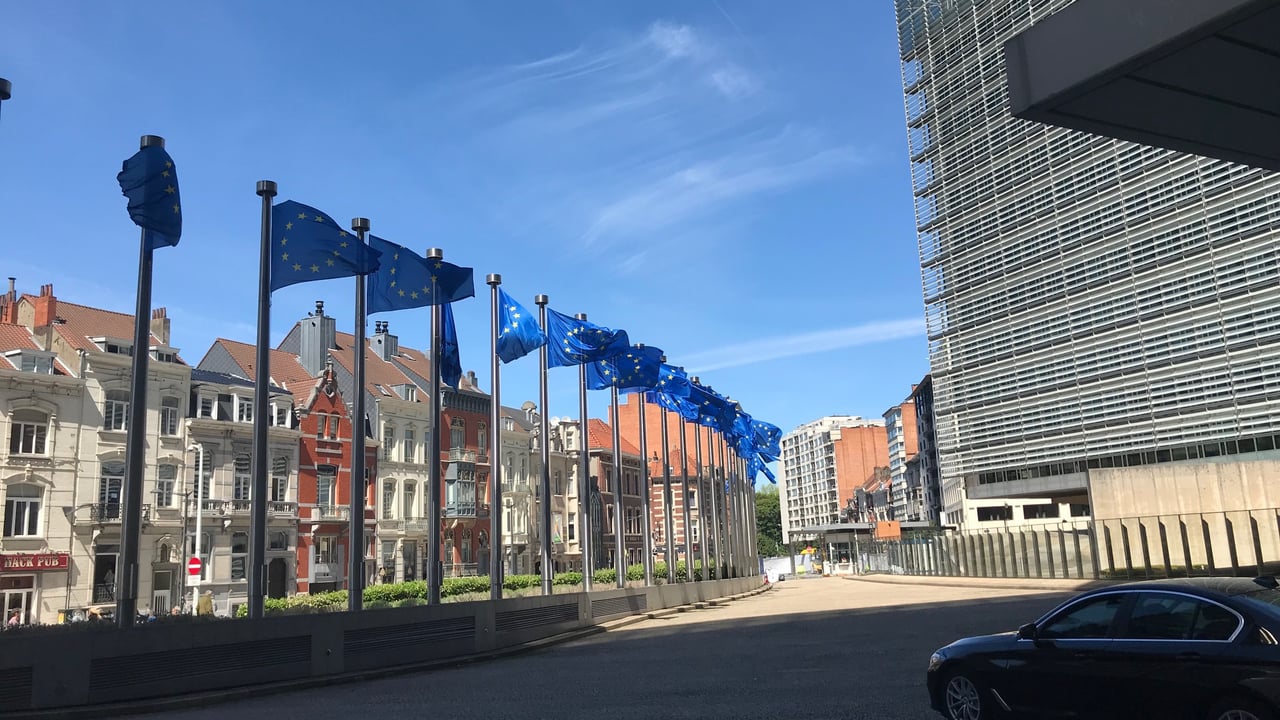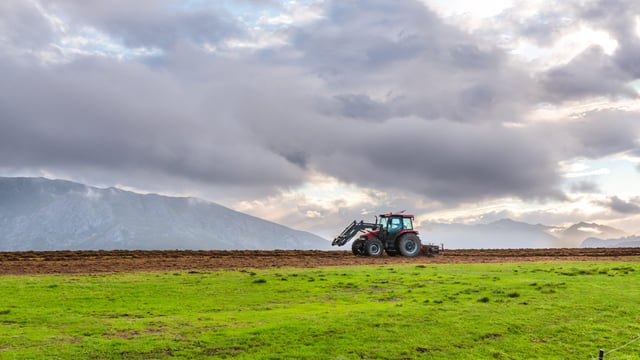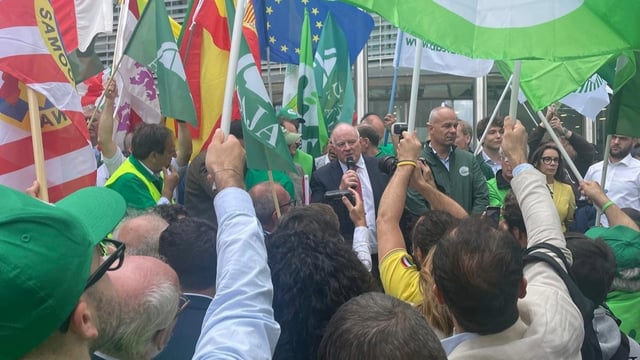Coming months 'decisive' for next CAP - Copa Cogeca
Copa Cogeca has said that the coming months will prove to be decisive for the next Common Agricultural Policy (CAP).
European farm organisations marched in Brussels today (Wednesday, July 16) opposing the approach taken by the European Commission on agricultural policy.
The demonstration coincided with the commission presenting its proposals for the next EU long-term budget for 2028-2034 amounting to almost €2 trillion.
Under the proposals, €300 billion would be ringfenced in a single fund for CAP, which is down from the current budget of €387 billion.
Copa Cogeca said the EU Commission has "effectively decided to dismantle the ‘common’ nature of the CAP".
The umbrella organisation representing farmers and agri-cooperatives asked if the European Parliament and Council of Ministers will support "what is already shaping up to be the worst reform of the CAP".
In recent months, Copa Cogeca has advocated for a consolidated, inflation-adjusted budget and a CAP that "ensures predictability and the good functioning of the single market".
"While the commission was publicly speaking about stakeholder engagement, inclusive dialogue, and listening to farming communities, we now have clear evidence that [EU Commission] President von der Leyen had, in fact, been preparing behind the scenes for months a radical, unilateral, and cynical approach to EU agriculture and its budget.
"Likewise, the votes and positions of the European Parliament and the European Council have been entirely disregarded in the proposal presented today.
"The result is an approach that is unacceptable to European farming organisations," Copa Cogeca said.
The organisation said that full details of the CAP proposals, which have yet to be released, "will require a very detailed analysis".
"Beneath the euphemisms, accounting debates, and polished talking points lies a more unsettling truth: the very foundation of European agricultural policy is being undermined and dismantled in what could go down as a Black Wednesday in Brussels.
"Budgetary cuts, the dissolution of the two pillars, a loss of communality and the commission’s disengagement from its historic agricultural policy, can they be interpreted as anything else than a message of abandonment, indifference, and lack of strategic priority for agriculture and rural communities?" it added.
Copa Cogeca said that "regardless of budgetary breakdowns, we know exactly who will be hit hardest: family farms—the cornerstone of our model".
"These farms have withstood crisis after crisis. They provide diversity, quality, and resilience in our food systems and territories.
"These are the farmers we applauded during the pandemic and who will lead the green transition demanded by the commission.
"And yet, with this budget signal—just as a new legislative cycle begins, and with the looming EU-Mercosur deal—how can the Commission expect to still be heard and trusted by the agricultural community in the years ahead?" it asked.
"To those who feel shocked, dismayed, or stunned by the commission’s announcements this Wednesday, we say this is only the beginning of a long process.
"We call on the European co-legislators—particularly the agriculture committee and ministers —to take up these two dossiers and turn words of support for agriculture into concrete action," the organisation added.





